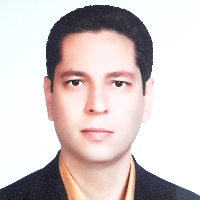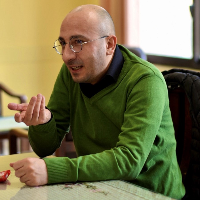Discourse Analysis of the Development and its Relationship with the Rural Element in the Post-Revolutionary Governments of Iran (Fifth to Tenth Governments)
In Iran, after the Islamic Revolution, the discourse of development was aligned with the discourse of the revolution. The promises of the revolution to eliminate deprivation and to pay attention to the oppressed had a special focus on the rural areas, and the schools of development emerged with the same promise. During this period, governments were primarily responsible for designing and implementing rural development programs. This article tries to analyze the discourse of each government and the relationship it has with the rural element. In this research, the theoretical perspective of the critical theory in general and revisionist approaches in development, especially the post-development theory, have been used. The purpose of this article is to describe the dominant discourses in the fifth to tenth governments and the position of the rural element in the territory of each discourse. The study also seeks to answer these questions: What are the differences and commonalities in the discourses of post-revolutionary governments? How is the construction of development in post-revolutionary governments in the field of rural development? What effect did the discourses of post-revolutionary governments have on the models chosen for rural development?
Methodologically, this research is based on the principles of Laclau and Mouffe’s discourse theory and the operational stages of Post-foundational Discourse Analysis (PDA). According to this approach, in this study, the discourse of rural development has been theoretically conceptualized in three steps: (1) Co-construction (2) Reconstruction (3) Collocation. The president is intended to represent the discourse of that government. The texts used in this research are purposefully-selected lectures and interviews of three presidents. In the selection, texts have been considered that include three directions: 1) texts that show the main orientations and policies of each president, 2) texts that mention development and planning in general, and 3) texts in which rural development is specifically addressed. Three speeches were selected from each president, and after studying all the speeches and interviews of the presidents related to these three axes, a text was selected from each axis that is closest to the objectives of this research. Then, the results of the analysis in the texts of the first to fifth five-year development plans prepared by these governments have been validated and reviewed in the sections related to the rural area.
The results of this analysis show that no discourse has been able to absorb the rural element without any defects. In any discourse, the existence of the limiting and influential factors has seriously damaged the formation of a complete and strong relationship between the rural element and the central nodal point. In the analysis of the Hashemi government's discourse in the rural area, the central role of improving physical and external conditions can be recognized, and this shows that the rural area is within the discourse of the government. But this relationship cannot be considered complete without any flaws. In this area, the discourse has acted contrary to its principles. Perceptions of rural backwardness, land ownership, and the inability of private capitalism to play a role in this area are elements that have hampered the full and comprehensive formation of this inter-discourse relationship. Also, the need for infrastructure work and the existence of a strong institution such as Jihad-Sazandegi encourages the government to play a direct role in this area, a role that has been avoided in other areas. For this reason, the formed relationship can be considered as distorted and heterogeneous. The rural sphere in the discourse of Khatami's government is in the realm of discourse and cannot be assumed outside it. Still, at the same time, two categories of elements in this regard are effective within the discourse: elements that contribute to the discourse close to the rural sphere, and elements that weaken this relationship and remove it from the discourse. This causes the discourse not to be able to function effectively in this area in a coordinated manner with other areas. The rural area in the discourse of the Khatami government has not been able to meet the conditions for the adoption of discourse policies fully. It indicates the loss of opportunities in which the rural area could have benefited from macro-policies, but these communication problems have made this benefit incomplete. However, the rural area has a better and more effective relationship with the realm of discourse in the Khatami period than the Hashemi period. In the rural area, the discourse of Ahmadinejad's government is the most relevant to all the discourses of previous governments. The central nodal point of this discourse focuses directly on the rural area. Improving the distribution of wealth and facilities has directly made the rural area one of its main goals. In this way, the rural sphere is completely and perfectly in the realm of discourse, and the connection that the elements of discourse, especially its central nodal point, make with this sphere as a complete connection. Therefore, the Ahmadinejad government's discourse in attracting the rural sphere in its discourse is the most successful president among its predecessors, and there is a strong and two-way connection between the rural sphere and the central nodal point of the Ahmadinejad government's discourse. But one of the weaknesses of the discourse of Ahmadinejad's government is that it has not been able to consider both internal and external dimensions in the rural area. It can be said that problems arising from development programs do not necessarily mean that they are implemented incorrectly but can be due to the foundations of the development discourse itself. Accordingly, in the present study, the authors have considered the foundations that go beyond the method of implementation or apparent approaches. Due to these problems, the discourses cannot deal comprehensively with the issues of rural communities, and their effectiveness should be questioned. On the other hand, the results of this analysis show that the development discourse, especially in development planning, cannot be neutral. Due to its discursive nature, development cannot move towards the goals set in the programs without any interference. Goals that are themselves influenced by the development discourse. We are now faced with a phenomenon that is at the forefront of discourse at all stages, including understanding the world around us, evaluating current conditions, setting goals and patterns, and determining ways to achieve these goals. As a result, policymakers who determine the direction of development use it to dominate their discourse.
پرداخت حق اشتراک به معنای پذیرش "شرایط خدمات" پایگاه مگیران از سوی شماست.
اگر عضو مگیران هستید:
اگر مقاله ای از شما در مگیران نمایه شده، برای استفاده از اعتبار اهدایی سامانه نویسندگان با ایمیل منتشرشده ثبت نام کنید. ثبت نام
- حق عضویت دریافتی صرف حمایت از نشریات عضو و نگهداری، تکمیل و توسعه مگیران میشود.
- پرداخت حق اشتراک و دانلود مقالات اجازه بازنشر آن در سایر رسانههای چاپی و دیجیتال را به کاربر نمیدهد.





